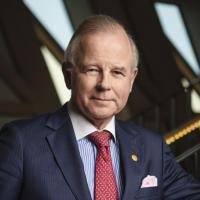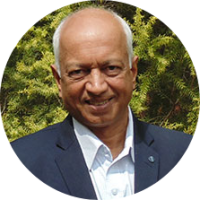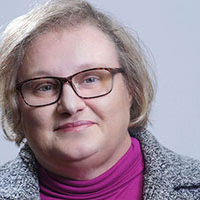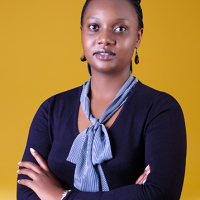A Science|Business Network Roundtable (14:00 – 17:00 CEST) followed by networking drinks
Among the issues that the COVID-19 pandemic brought to the surface, global cooperation in health research emerged as an essential requirement to prevent and tackle future outbreaks from concerted surveillance of emerging infectious diseases to drug manufacturing, knowledge transfer, data sharing and biodiversity protection. Beyond pandemic preparedness, the need for a broader, structural and sustainable North-South partnership has now become obvious. While some partnerships in the sector, such as the European and Developing Countries Clinical Trials Partnership (EDCTP), have thrived for decades, the number of parties at play and partnerships have multiplied throughout the COVID crisis. In addition, the health sector's digitalisation rush and the growing importance of AI offer enormous opportunities to deepen North-South partnerships. Moving forward, to ensure a coordinated approach, several questions need clearer answers.
The realms in which the EU can prove to be a reliable partner in health research are multiple, ranging from vaccine development to fighting antimicrobial resistance and gene editing for next-generation medicine. But to address unmet medical needs and market failure, what kind of partnerships is the EU willing to sign with partners around the world? Do the research partnerships in place envision sufficiently proactive roles for the Global South parties, both as providers and receivers of information, skills and best practices? How to proceed to ensure that research collaboration goes hand-in-hand with sustainable funding, access to medical evaluation and commercialisation of products that come out of research? Belgium, currently holding the Presidency of the EU, ambitions to strengthen Africa-EU cooperation in health. Before Belgium, the Spanish and the French presidencies also included cooperation with the Global South on their strategic agendas. To what extent can EU member states pull together their initiatives and ties with Latin America, Africa and Asia? And within EU institutions, what needs to happen to ensure synergies between the various DGs and international bodies at play? Finally, what should partners from policy, research and industry aim for: a global approach in health research or an agile mechanism focused on delivering solutions of local utility?
On 25 June 2024, Science|Business will bring together key representatives from the North and the South, international bodies, EU institutions, national governments, leading research organisations and companies to discuss the steps needed to crystallise a new era for health and life science cooperation with the Global South.
















14.00 Welcome and introductory remarks
14.10 Striking a balance: re-thinking international partnerships for a shared impact
In the context of previous efforts in international partnerships, with best practices and lessons learned, what should be the blueprint for equitable collaboration between Global South partners and the EU? How do we ensure that North-South cooperation agreements are fair, that circulation of knowledge and talent goes both ways, reflecting each partner’s specific strengths, and that those partnerships deliver an impact locally?
15.00 Coffee Break
15.30 Health research in a digitalised world: addressing global data concerns
The doors opened by digitalisation in health are countless, and researchers are only now scratching the surface of what will be possible in the future to combat diseases globally. However, to make sure that research organisations globally have access to patients’ and research data, barriers need to be broken and checks need to be put in place. How do we reconcile these needs in the context of international health research?
16.15 Long-term thinking: How to ensure sustainable partnerships through finance and institutions
The recent multiplication of partnerships, whether bilateral or multilateral, carries the risk of fragmenting available resources. Health threats require agile solutions, and a whole-of-government approach, in the EU institutions, among EU member states, and in Global South countries. What is needed to implement stable and flexible financing mechanisms, and ensure sufficient levels of funding? What should be the role of international organisations? How to reinforce South-South cooperation in the long run?
17.00 Closing Remarks & Networking Reception
For questions and information, please contact Raffaele Guerini
Partners


 A unique international forum for public research organisations and companies to connect their external engagement with strategic interests around their R&D system.
A unique international forum for public research organisations and companies to connect their external engagement with strategic interests around their R&D system.